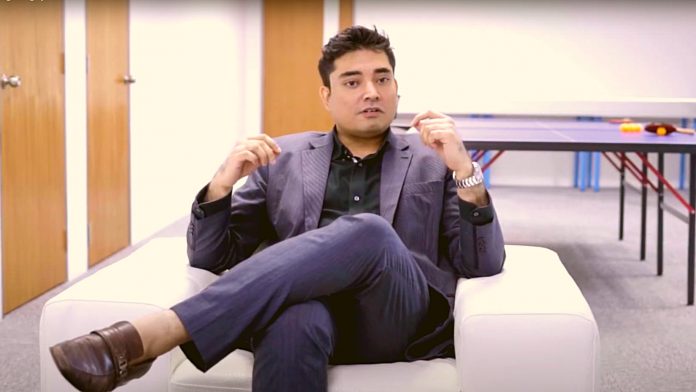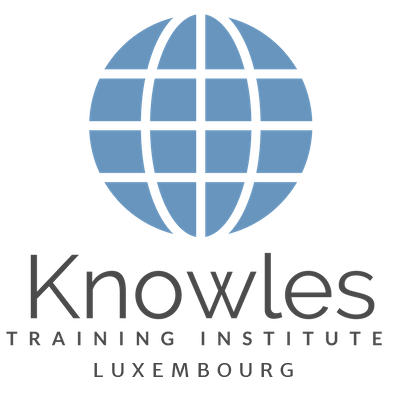Think Like a Memory Champion: Interview with Sancy Suraj, Memory Coach and Trainer
Do you struggle to remember important information? Are you looking for ways to improve your memory skills? Look no further than Sancy Suraj, a Memory Coach and Trainer from Singapore who has been teaching memory improvement techniques for over 12 years. With 6 memory records and a representation of Singapore at the world memory championships in 2011, Sancy is an expert in the field of memory improvement. We had the opportunity to sit down with Sancy to learn about his journey into mnemonics, his coaching approach, and some of his favorite memory techniques.
 How did you first get interested in memory improvement, and what inspired you to become a memory coach and trainer?
How did you first get interested in memory improvement, and what inspired you to become a memory coach and trainer?
I have always been fascinated by the brain and its abilities, especially when it comes to memory. When I was a child, I remember being able to memorize long poems and passages easily. However, as I grew older and my workload increased, I found it increasingly difficult to retain information. This led me to research and explore various memory improvement techniques, and I was amazed by the transformational impact they had on my life.
My passion for memory improvement grew, and I began sharing my knowledge with others. I started conducting workshops and training sessions to help people improve their memory skills. As I saw the positive impact my teachings had on individuals, I realized that I wanted to make a career out of it. This inspired me to become a memory coach and trainer, so that I could help others unlock their full potential and achieve their goals through enhanced memory skills.
What are some of the most important qualities or traits that a person needs to develop in order to become a memory champion?
Becoming a memory champion requires a combination of various qualities and traits. First and foremost, a person needs to have a strong desire to learn and improve their memory skills. They should also possess the ability to focus and concentrate for extended periods of time, as this is crucial for memorization.
Additionally, a person must be able to visualize and create vivid mental images, as this helps with encoding and recall. They should also have a good sense of creativity and imagination, which can help them create associations and connections between different pieces of information.
Lastly, a memory champion must have discipline and dedication. Improving memory skills is a continuous process that requires consistent practice and commitment. Without discipline and dedication, it’s easy to get distracted or give up too quickly.
Can you describe some of the specific memory techniques or strategies that you teach your clients, and how these techniques can be applied to everyday life?
One of the primary techniques that I teach my clients is the method of loci, also known as the memory palace. This involves associating information with specific physical locations, such as rooms in a house or landmarks on a street. By creating a mental map and placing information in specific locations, it becomes easier to recall the information later.
Another technique is the use of mnemonic devices, which involves creating memorable associations or acronyms to aid in recall. For example, to remember a list of items such as “eggs, milk, bread, and butter,” one could create an acronym such as “EMBB” or create a memorable story or image that incorporates all of the items.
These techniques can be applied to everyday life in various ways, such as remembering names, important dates, and even directions. By incorporating these techniques into daily life, individuals can improve their memory skills and become more efficient in their work and personal lives.
“By teaching the power of memory techniques, we empower individuals to unlock their full potential and make every day a little bit easier and more memorable.”
How do you help your clients overcome common challenges or roadblocks when it comes to improving their memory skills?
One of the most common challenges my clients face is the lack of motivation and consistency when it comes to practicing memory techniques. To overcome this, I work with my clients to set achievable goals and create a structured practice routine that fits into their daily lives.
Another common roadblock is the inability to focus and concentrate, which can hinder the ability to encode and recall information. To overcome this, I provide tips and strategies for improving focus and concentration, such as taking breaks, eliminating distractions, and practicing mindfulness.
Lastly, some clients may struggle with anxiety or self-doubt when it comes to their memory skills. In these cases, I provide emotional support and encouragement, as well as help them develop a positive mindset and self-talk that can aid in their memory improvement journey.
What are some of the most common misconceptions about memory improvement, and how do you address these misconceptions in your coaching and training?
When it comes to memory improvement, there are several common misconceptions that people may have. One of the biggest misconceptions is that some people are just naturally good at remembering things, while others are not. However, the truth is that memory is a skill that can be developed and improved with practice and training. Another common misconception is that memory techniques are only useful for memorizing lists or numbers, and are not applicable to real-life situations. In reality, memory techniques can be applied to any type of information, whether it is a name, a face, a phone number, or even a speech or presentation.
Another common misconception is that memory techniques are difficult or time-consuming to learn. While it is true that some techniques may require some initial effort and practice, the benefits of improved memory can be well worth the investment. It is also important to note that there is no one-size-fits-all approach to memory improvement, and what works best for one person may not work as well for another. As a memory coach and trainer, I strive to address these misconceptions by providing clear and accurate information about memory improvement and demonstrating the effectiveness of various techniques through real-life examples and exercises.
“Memory is not a gift, it’s a skill. By breaking down common misconceptions about memory improvement, we can all unlock our full potential and achieve remarkable feats of recall.”
When asked about how he first became interested in mnemonics, Sancy explained that it all started when he was in school and struggling to remember his course material. He began to research and experiment with various memory techniques, and soon discovered a natural talent for memorization. This passion for mnemonics led him to compete in memory championships and eventually become a memory coach and trainer.
Sancy works with clients in a variety of settings, including corporate training sessions and individual coaching sessions. He tailors his coaching approach to each client’s unique needs and learning styles, and has seen impressive results from his students. Sancy shared examples of clients who have been able to improve their work performance, pass important exams, and even remember important personal details like names and birthdays.
One of Sancy’s favorite memory techniques is the memory palace, which involves visualizing a familiar location and placing items to be remembered in specific locations within that space. Sancy explained that this technique works because the brain is naturally wired to remember spatial information, making it easier to recall the information being stored in each location. Another favorite technique is the link method, which involves creating a vivid mental image linking two items to be remembered.
 What advice would you give to someone who is just starting to explore memory improvement techniques, and how can they get started on the path to becoming a memory champion?
What advice would you give to someone who is just starting to explore memory improvement techniques, and how can they get started on the path to becoming a memory champion?
When it comes to memory improvement, there are several common misconceptions that people may have. One of the biggest misconceptions is that some people are just naturally good at remembering things, while others are not. However, the truth is that memory is a skill that can be developed and improved with practice and training. Another common misconception is that memory techniques are only useful for memorizing lists or numbers, and are not applicable to real-life situations. In reality, memory techniques can be applied to any type of information, whether it is a name, a face, a phone number, or even a speech or presentation.
Another common misconception is that memory techniques are difficult or time-consuming to learn. While it is true that some techniques may require some initial effort and practice, the benefits of improved memory can be well worth the investment. It is also important to note that there is no one-size-fits-all approach to memory improvement, and what works best for one person may not work as well for another. As a memory coach and trainer, I strive to address these misconceptions by providing clear and accurate information about memory improvement and demonstrating the effectiveness of various techniques through real-life examples and exercises.
How important is practice and repetition in developing memory skills, and what strategies do you recommend for making practice more effective?
When it comes to memory improvement, there are several common misconceptions that people may have. One of the biggest misconceptions is that some people are just naturally good at remembering things, while others are not. However, the truth is that memory is a skill that can be developed and improved with practice and training. Another common misconception is that memory techniques are only useful for memorizing lists or numbers, and are not applicable to real-life situations. In reality, memory techniques can be applied to any type of information, whether it is a name, a face, a phone number, or even a speech or presentation.
Another common misconception is that memory techniques are difficult or time-consuming to learn. While it is true that some techniques may require some initial effort and practice, the benefits of improved memory can be well worth the investment. It is also important to note that there is no one-size-fits-all approach to memory improvement, and what works best for one person may not work as well for another. As a memory coach and trainer, I strive to address these misconceptions by providing clear and accurate information about memory improvement and demonstrating the effectiveness of various techniques through real-life examples and exercises.
Can you share some examples of clients who have made significant improvements in their memory skills after working with you, and what lessons can be learned from their experiences?
As a memory coach and trainer, I always make sure to tailor my approach to meet the unique needs and learning styles of each of my clients. Every person has a different background, level of experience, and preferred way of learning, so it’s crucial to adapt my methods to best suit their needs. For example, some clients may prefer more visual aids or hands-on activities, while others may prefer more conceptual explanations or verbal instructions.
To get a better understanding of their individual needs and preferences, I always start by having a conversation with my clients to learn more about their goals, challenges, and past experiences. This helps me to develop a personalized plan that caters to their specific needs and learning style. Throughout our coaching sessions, I also regularly check in with them to ensure that they are understanding and absorbing the material, and to make any necessary adjustments to our approach.
How do you stay up-to-date with the latest research and developments in the field of memory improvement, and how do you incorporate this knowledge into your coaching and training?
Practice and repetition are absolutely essential for mastering memory techniques. In fact, I often tell my clients that memory is like a muscle that needs to be exercised regularly in order to stay strong and healthy. The more you practice, the stronger your memory will become, and the easier it will be to retain information over the long term.
To encourage my clients to continue practicing on their own, I provide them with a variety of resources and tools, such as memory exercises and games, mnemonic devices, and memory journals. I also encourage them to set aside dedicated time each day or week for memory practice, and to make it a regular habit in their daily routine.
Ultimately, the key to success with memory techniques is persistence and consistency. It may take time and effort to see significant improvements, but with consistent practice and dedication, anyone can improve their memory and achieve their goals.
Looking ahead, what new trends or innovations do you see on the horizon in the field of memory improvement, and how do you plan to adapt your coaching and training to keep up with these changes?
Looking back on my career as a memory coach and trainer, there have been many moments that I am proud of. One of the most rewarding aspects of my work is seeing the transformation in my clients as they develop new skills and achieve their goals.
One particularly memorable moment was when one of my clients, who had previously struggled with remembering names and faces, was able to confidently recall the names of all of the attendees at a networking event. Another proud moment was when I was invited to speak at a prestigious conference on memory techniques, and was able to share my knowledge and expertise with a wide audience.
Overall, I am proud of the positive impact that my work has had on the lives of my clients, and of the contributions that I have made to the field of memory science. There is still so much to learn and discover about the mysteries of the brain and memory, and I am excited to continue exploring and sharing my findings with others.
“The journey of memory improvement is ever-evolving, with new trends and innovations on the horizon. As a memory coach, I am committed to staying at the forefront of these changes, adapting my coaching and training to ensure that my clients are equipped with the latest tools and techniques for success.”
Sancy Suraj’s passion for mnemonics and dedication to helping others improve their memory skills make him an invaluable resource for anyone looking to enhance their learning and retention abilities. His coaching approach, tailored to the individual needs of each client, has helped countless people achieve their goals and improve their personal and professional lives. By incorporating memory techniques like the memory palace and link method, anyone can improve their memory skills and think like a memory champion.
Click here for more information on our Memory Courses

